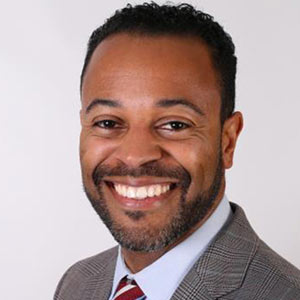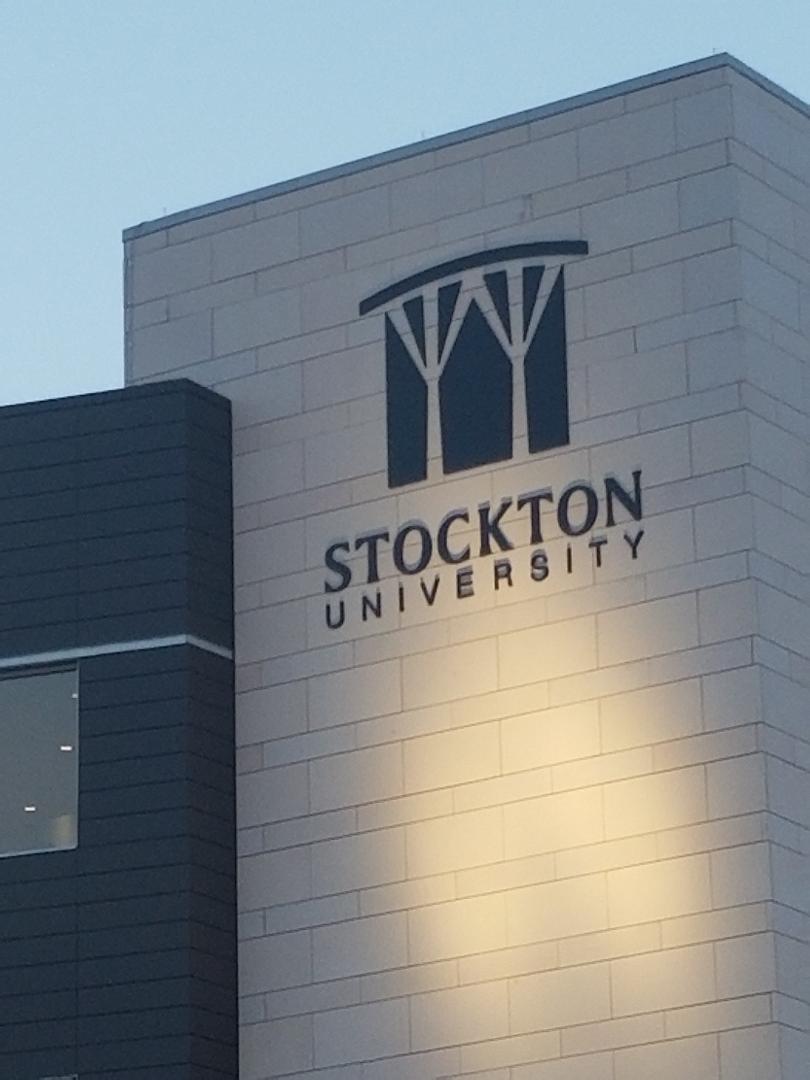Brian Jackson: Stockton Atlantic City Continues to Grow, Impress

Brian Jackson
By Clyde Hughes | AC JosepH Media
ATLANTIC CITY – Brian Jackson, the chief operating officer of Stockton University’s Atlantic City campus, jokes that he is “holding up” after a whirlwind first year of launching the campus on the city’s world famous boardwalk.
Jackson, though, speaks like a proud father about the growth the campus has experienced in its first year as Atlantic City’s only four-year institution – and the running start it is off to this year.
Consider that Stockton Atlantic City reached full capacity (533 spots) at its residential hall before any other Stockton residential facility this year. The number of students taking classes at Stockton-Atlantic City is up a whopping 50 percent from its opening in 2018. There is plenty of reason for Jackson to be happy.
“Things have been very good here,” said Jackson, who has been with the university since 1998 and took on task of leading the Atlantic City campus effort in 2017.
“I think there’s a better understanding of the campus now and there is much more of a comfort level with our Atlantic City campus,” he added. “In the first year we tried to figure out who we are and sense what students here were interested in taking.
“I think the faculty has really embraced campus and want to teach here. I have to thank Dr. Michelle McDonald (associate vice president for academic affairs and chief officer for academic programming at Stockton Atlantic City) who has been working closely with faculty and deans for galvanizing the faculty to teach here.”
Read: Brian Jackson Sees Stockton Atlantic City’s Potential
While the Atlantic City campus is bursting at it seam one year in, its overall impact on Atlantic City is not so sure. A deal to purchase the old Atlantic Club casino to expand the campus fell through last fall. Plans for new residential space is on hold because of state budget woes.
Stockton’s William J. Hughes Center for Public Policy said in a February report while the university’s presence is significant in Atlantic City, its potential alone to reshape the historic resort destination driven on the casino industry should not be overblown.

“The upshot is that while it seems clear that Stockton Atlantic City will play some role in helping to diversify the local Atlantic City economy (both via its own existence in the city, as well as its ability to help support existing and new businesses — especially in its immediate neighborhood), it seems unlikely that it will radically reshape the city’s industrial base over the long-run,” the Hughes Center report said.
Jackson echoed that sentiment to Front Runner New Jersey, saying that Stockton Atlantic City is a willing partner with city to have a positive impact, but would never be able to do it solo.
“We’re not the saviors of Atlantic City; that’s not our role,” Jackson said. “But we have a lot of support. The mayor (Frank Gilliam) and city council president (Marty Small) are both Stockton alumni. The of the CEOs from the casinos here are Stockton alumni. The CEOs of both hospitals here are Stockton alum.
Read: Homegrown Frank Gilliam Emerges as Face of Atlantic City
Read: Marty Small Knows Atlantic City
“We’ve had a banner year here and there is great enthusiasm for what Stockton
is doing here and for Atlantic City. I am humbled to have a role to elevate
this city to where it can be,” Jackson continued.
Jackson pointed to city council’s decision last July to create a new university district around Stockton Atlantic City in the Chelsea neighborhood, allowing for the additional support for investment and development related to the institution. The district includes historic O’Donnell Park, the Sandcastle Stadium and the Flyers Skate Zone.
Atlantic City is a majority-minority city, mostly divided up by African-Americans (36.2), Whites (31.9 percent) and Latinos (29.3 percent), according to the latest census figures. Jackson said the university’s first Africana Studies program is now a full program where students can earn a major in the subject.
He also touted other things the university has been doing to reach out into the community.
“We’ve been bringing in kids in middle school students to campus over the past year,” Jackson said. He noted that if high school graduates are not ready for the rigors of college, they can enter a program where they would attend Atlantic Cape Community College, which has a campus in Atlantic City, for two years all while living on Stockton’s Atlantic City campus.
“Upon completion (at Atlantic Cape), they would be automatically admitted to Stockton,” Jackson said. “They can join any organization and attend our events. It helps Atlantic Cape because it improves their graduation and retention rates.
READ: Dr. Barbara Gaba Leads Way at Atlantic Cape Community College
“For Stockton, it allows us to bring them in and complete their final two years. They are better prepared for rigors of Stockton than as a freshman,” Jackson added.
He said that Stockton Atlantic City students are involved to Homework Completion and mentoring programs throughout the city, student teaching in Atlantic City school and throughout Atlantic County and have helped develop numerous community gardens.
“In early September, we have a fall day of service doing projects throughout the city and of course on (Martin Luther King Jr.) Day, we have a thousand people doing service projects. We’re so excited about our success experienced so far,” he said.
Stockton’s reputation, with the help of the new campus helped it receive 10,500 student applications this past year, a record.
“We are in a position to do very well, serve our community and add to vibrancy of Atlantic City,” Jackson said.
Jackson and Stockton Atlantic City is off to another fast start.






1 thought on “Brian Jackson: Stockton Atlantic City Continues to Grow, Impress”